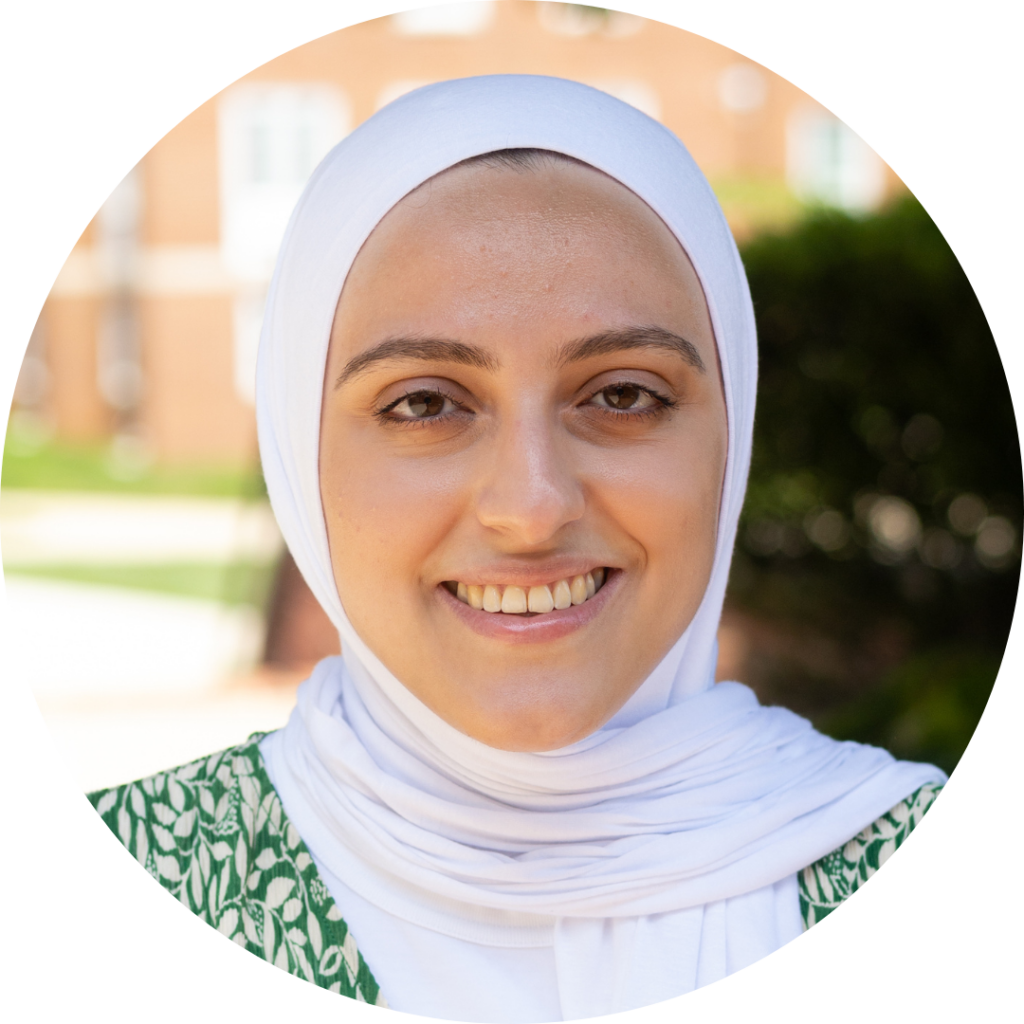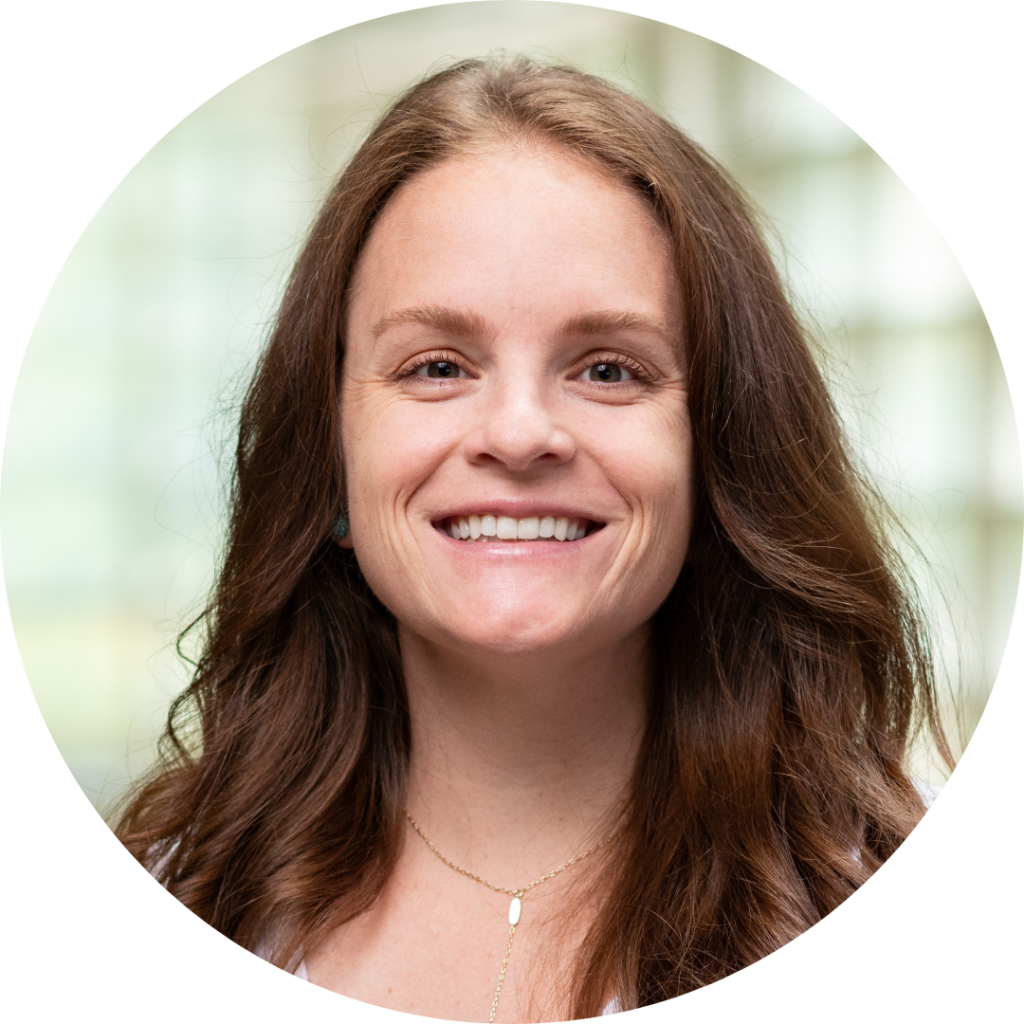By Rasha Alkhateeb, Loren Jones, and Alison Jovanovic, University of Maryland, College Park
Writing center tutors are teachers of writing. As tutors identify their reflexive writing identities, or how they understand their identity as writers and teachers of writing, they negotiate how writing is positioned as a meaning-making process in their sessions (Ryan). The process of developing a writer and teacher identity makes writing tutoring spaces valuable for preservice teachers who are learning how to work alongside students.
Preservice teachers are undergraduate students working towards their bachelor’s degree in education and teacher certification. They are students who are eager to become professional educators, but who may have little to no experience teaching in formal schooling. Like all undergraduate students, Street notes, preservice teachers have years of writing instruction garnered through their secondary and undergraduate education. This may influence how they see themselves as writers and how they model best practices in their future classrooms (Isaacs and Kolba).

Tutoring in a writing center can be a different experience than teaching literacy in a secondary English classroom. (It was once described to us as “cooking in your mother in law’s kitchen,” in that you may have your own recipes or pedagogies but you must balance the needs of others and yourself.) However, writing centers can offer places for preservice teachers to gain early field experience, where they can engage in teaching and learning moments and hone their craft.
In order to learn more about the processes of writer and teacher identity development of preservice teachers working in a writing center setting, we collected reflective journal responses from preservice teachers about their tutoring experiences with middle school students. The preservice teachers were enrolled at the University of Maryland, College Park (UMD) and worked at a reading center at a local middle school.
In the reading center, tutors work with middle school students on reading, writing, vocabulary, comprehension, spelling, and listening. We see the reading center as similar to writing centers in that students must know how to critically read texts to write them. Our preservice teachers’ literacy practices in this tutoring relationship show their identity development as educators and remind us that literacy tutoring relies on reading and writing. Understanding how preservice teachers develop their identities can help all writing center tutors engage in intentional meaning-making about their identity as a tutor, the skill sets they have developed in their teaching praxis, and their overall goals for this type of work.
Our Writing Tutoring Space
We come to this work as teacher educators in Literacy, TESOL, and Social Studies who recognized a need for early field experience opportunities for undergraduate students interested in the teaching profession. This project began with a grant funded initiative to provide opportunities for intentional early field experiences in collaboration with a reading center at our institution that works with a local school district. The reading center pairs UMD student tutors with middle school students for literacy support. The students are often in groups, called “communities,” of three or more and work with one tutor at the middle school or at the UMD campus, depending on the series of programs offered. For example, the middle school program is offered after school on weekdays and on campus on Saturday mornings. While students, who are called “scholars” by their tutors in the reading center, are free to work with a different tutor during each session, they often choose to work in the same communities and with the same tutor. During a two hour session, the first hour is spent working through literacy homework assignments from school and reading books from the reading center or their personal choice, with a ten minute break at the half point mark. The rest of the time is spent playing reading games, the true moment most students wait for. As students’ caregivers start coming for pickup time, they may discuss their progress and ways to continue supporting their literacy development.
In our reading center, sessions are typically about 45 minutes in length, which is as long as a class period in schools. We teach the preservice teachers to approach their session as building a lesson plan. This models how to identify the focus of a “lesson” or text and the strategies they will use to support student learning. This is not unlike the work that traditional writing center tutors do of setting an agenda. Tutors work alongside students to identify the goals of a session, how they may meet those goals, and the writing pedagogical knowledge they hope their students will leave the session with (i.e., learning objectives). Unlike traditional writing center tutors, the preservice teachers are required to draw from a lesson plan template to structure their sessions. Some writing center tutors may find our template useful in creating realistic goals within the time frame. Here, we offer our template and envisionment of a lesson plan.
Lesson Plan Example
| Genre and Focus of Text | Research Paper |
| Time of Session | 45 mins |
| Learning Objectives | Discuss student writing, analyze research processes, and develop revision skills for text. |
| Outline for Session This may be the place for integrating activities or assessments in a traditional lesson plan for a secondary education setting. | 5 mins: Identify goals and what literacy tasks the student may want to focus on. 20 mins (depending on length and familiarity with text): Read through draft and provide/discuss feedback with the student. 15 mins: Model to student how to evaluate online information, integrate source material, and use citations. 10 mins: Reflections, goals for revisions, and identifying next steps. |
Overview
Our preservice teachers were enrolled in Historical and Philosophical Perspectives on Education, a semester-long introductory education course, while simultaneously tutoring middle school students in our reading center. They belonged to different sections of the same course taught by two different instructors in the College of Education and who participated in the organization of the grant and whose efforts we are appreciative of. By enrolling in the course, our preservice teachers gained introductory pedagogical knowledge on teaching and schooling. They interrogated systemic structures in education from a theoretical perspective in class and then saw practical examples in their tutoring experiences. For example, they discussed the role of caregivers in their students’ lives and bore witness to the diverse literacies middle school students use, including those that may serve as language brokers for their families and may apply the literacy strategies they learned in class to help with at-home and community literacies.
The Study
To better understand how preservice teachers developed their identities in the reading center, we assigned a reflective activity. While there were approximately 22 students enrolled in the course, four students agreed to participate in the study. Of those four, we share reflections from two tutors who consented to having their reflections shared. These reflections come from four journal prompts written over the course of a spring semester and assigned monthly. We asked students to keep these entries to document their teaching experiences and formation of their teaching identities as tutors. By keeping a journal, preservice teachers were able to engage in meaningful reflections about literacy instruction in a school setting impacted by literacy policy. From these reflections, we found that preservice teachers’ content knowledge about teaching and their understanding of their role as teachers of literacy helped inform how they approach their individual tutoring sessions, which look different from each tutor.
Reflective Journal Prompts
Our reflective journal prompts were guided by our ideas of writing praxis in education courses with early field experiences. We identified that learning must be conceived as a process of self-realization, bringing students into contact with vital questions of being, freedom, responsibility, courage, and authenticity, while encouraging them to know themselves not only through critical introspection but through action and imagination.
-
Month 1
-
Month 2
-
Month 3
-
Month 4
Discovering the Self
Prompt 1 – Being a tutor is a unique role where you may scaffold what students learn from instructors, classmates, and their communities of care. As you take on this new role with us, how do you understand your identity as a tutor? Suggested length: One paragraph (4-5 sentences).
Education's Role in Society
Prompt 1 – How do your schooling experiences shape the type of teaching and learning strategies you use in your tutoring sessions? Suggested length: One paragraph (4-5 sentences).
Prompt 2 – How do these strategies benefit students? Suggested length: One paragraph (4-5 sentences).
Education as a Process of Becoming
Prompt 1 – What connections can you make between tutoring, being a student in Historical and Philosophical Perspectives on Education, [or writing center professional development] and your day to day life? Suggested length: One paragraph (5-6 sentences).
Prompt 2 – Pick one session you observed or engaged with this month at the reading center and summarize the strengths and areas for growth in the lesson you saw. Suggested length: One paragraph (5-6 sentences).
Meaningful Educational Experiences
Prompt 1 – How have your tutoring practices changed since working with students? What factors do you think are informing this change? Suggested length: One paragraph (4-5 sentences).
Prompt 2 – Identify one instance where you feel you made an impact/connection with a student. What was significant about it and what will you or the student take away after the reading center experience? Suggested length: One paragraph (4-5 sentences).
Reflexive Writing Identities
When we asked students to journal about how they understand their identity as a tutor, one wrote, “what I understand as tutoring is trying to pass on the idea of knowledge as a process and just reinforce what has been taught in the classroom.” Their response suggests that their role is to scaffold what students learn about writing processes from their teachers. They must balance the expectations of students, their teachers, and their tutor role while working to prepare students to be in control of their own writing processes (Aldohon; Raymond and Quinn). While there are many writing identities, Mary Ryan’s conceptualization of school and reflexive writers reflects what our tutor reflects on when we consider writing that happens in schools. School writers are students who write because it is expected of them to do so. They engage in little reflexivity about what writing means to them and their lived experiences. On the other hand, reflexive writers are those who have a developed sense of self as a writer and write texts that reflect their creative style and authentic voice. This is not to illustrate a writing binary or privilege one identity over the other, but to show the negotiation process tutors enter when working with students’ writing identities. Much like our tutor’s reflection, teachers of writing must balance literacy for academic purposes and literacy for supporting students’ development of their writing style and voice.
Teaching Literacy
In another journal response on how tutors’ schooling experiences inform the teaching and learning strategies used during their tutoring sessions, one tutor wrote about using the “I do, we do, then you do” method. This is an instructional practice that engages students through modeling and collaboration. For example, in this literacy tutoring experience with middle school students, our preservice teachers worked alongside students to complete homework assignments that assessed their reading comprehension and writing skills. Using socratic questioning, tutors helped guide students to identify their responses to guided questions and how to draft those written responses. As this tutor reflects, they draw from what Renata Fitzpatrick et al. describe as reflection-in-action as a spectrum of practice. This helps inform why tutors teach writing the way they do during a session and how students respond in their own writing.
In the reading center, tutors draw on a modeling approach by showing examples of how to reframe text, which a student may pick up on and develop a pattern in their writing style. This approach relies on tutors developing rapport with the student, which enables their suggestions to be heard. In their written reflection, our tutor shared the importance of relationship building and added, “I like to talk with students about fun things about our generation that will engage them in tutoring activities.” Like Spillane, our tutors are leveraging their funds of knowledge, or cultural and generational repertoires, to teach writing and engage in mentorship (Moll et al.). In another journal response, another tutor wrote, “My tutoring practices have changed as I was able to know the students more each week and was able to communicate with them more.” Writing center tutors may recognize the joy it is to interact with the same student many times on multiple versions of a draft or on different writing tasks. The process of identifying strategies that may work for a student helps preservice teachers and writing center tutors recognize patterns in their writing praxis.
Implications for Writing Center Praxis
As tutors reflect on their teaching and learning experiences in literacy centers, they develop a teaching identity that informs how literacy can be taught critically to students. Students rely on their teachers, classmates, or support systems for writing help before resorting to tutoring in the center (Whitcomb). When students feel that they are learning to write and rewrite alongside a community of other writers, specifically tutors, their writing self-efficacy improves (Bell and Hewerdine). With community writing in mind, we think of the importance of students seeing their tutors write in the reading and writing center and calling on their literacy funds of knowledge to do so (Latta et al.). We are reminded of our tutor’s call for the “I do, we do, then you do” method. This may look like modeling to a student how to reframe and revise a passage of writing to integrate cited material, include transition phrases, and work towards clarity. While these skills may not have been directly developed by taking Historical and Philosophical Perspectives on Education, our tutor’s ability to connect content from the course with their reflections in their tutoring experiences led to their understanding that modeling is an effective strategy that shows, not tells, students how to write for texts at school. This is one way for teachers to meet students where they are.
When we consider how to support writing center tutors’ development of their teacher identity, it might be worth looking at teacher preparation programs. In the case of our study, our preservice teachers had community in mind. One tutor wrote, “I did not realize how foggy my memory had gotten with middle school academia,” and turned to other tutors for confirmation they were teaching writing that met middle school standards. Like our preservice teachers, we turn to our community of other teachers of writing, whether that be tutors in the center or online resources created by educators. Where the teaching of literacy is concerned, tutors in a writing center context may not have the content knowledge needed to revise a specific text, but they have the writing knowledge to provide feedback for clarity. They may use socratic questioning methods to help guide student revisions and much like their students, they are learning how to develop a teaching repertoire for disciplinary specific texts. In the case of this tutors’ response, their teaching identity relies, in part, on community knowledge to inform how they develop their understanding and teaching of literacies. By creating spaces where it is acceptable, and even encouraged, to ask questions, preservice teachers and tutors can understand how their students learn and adapt their pedagogies and strategies to meet their needs.
Teachers are often asked to create a teaching philosophy, a text that outlines values and beliefs regarding their teaching and learning practices. We may need a similar text for writing center tutors. While our journal prompts did not ask students to draft a teaching philosophy, we wonder what reflexive opportunities this may provide teachers and tutors who are in a unique position as literacy educators in different but complementary roles. Writing is a process of becoming, or developing skills that represent our capacities for meaning-making. As our preservice teachers work towards becoming inservice teachers, they are also modeling to learners what literacy skills mean to people and educators outside of tutoring and the classroom. This pilot project helped us see that writing centers are important locations for early field experiences because they are teaching moments that help students to identify who they are as a writing teacher and what strategies inform their teaching identity. Meaningful experiences alone cannot uncover a teaching identity, but intentional written reflections and guided classroom discussions with other preservice teachers may lead to the development of tutors’ critical praxis about the teaching of writing, informed by their professional and personal repertoires.
A Mutually Beneficial Space
Writing centers need literacy pedagogical content knowledge and preservice teachers need opportunities for teaching experiences. With our project, we identified journal prompts as being reflective resources that bridge tutoring experiences with course content knowledge. While journal responses alone cannot support writing center tutors and preservice teachers, the experience of working alongside students in a teaching role that allows for personal and professional growth can be incredibly helpful as they develop their identities as writers and teachers of literacy, specifically reading, writing, and communication skills.
For writing centers, we see a course like Historical and Philosophical Perspectives on Education as a professional development opportunity for writing center tutors to reflect on how they teach writing and craft. Our preservice teachers take a series of methods instructional courses with modules that include pedagogies of writing, regardless of their content area. Courses with embedded literacy instruction and field experience can provide writing center tutors with guided opportunities to learn beyond theory and in a classroom setting. At our institution, the English Department provides a writing center tutor preparation course that may serve the same purpose as the proposed class. While there is much to be learned in transdisciplinary relationships, it is important to note that a course in the College of Education is taught with the purpose of preparing teachers by a teacher educator. This might be especially helpful for writing centers in the K-12 setting, but also in higher education, where humanizing curriculum and affirming pedagogies in the teaching of writing are essential to learning.
Works Cited
Aldohon, Hatem. “Writing centre conferences: tutors’ perceptions and practices.” Educational Studies, vol. 47, no. 5, pp. 554-573.
Bell, Katrina and Hewerdine, Jennifer. “Creating a Community of Learners: Affinity Groups and Informal Graduate Writing Support.” Praxis: A Writing Center Journal, vol. 14, no. 1, 2016. pp. 50-55.
Fitzpatrick, Renata; Kroll, Julia; and Levonian, Zach. “A Reflection on Reflective Writing Center Work.” WLN: A Journal of Writing Center Scholarship, vol. 41, no. 3-4, 2016, pp. 2-9.
Isaacs, Emily and Kolba, Ellen. “Mutual Benefits: Pre-Service Teachers and Public School Students in the Writing Center.” The Writing Center Journal, vol. 29, no. 2, Fall 2009, pp. 52-74.
Latta, Mark; Raica-Klotz, H; and Giroux, Chris. “Community Writing Centers: What Was, What Is, and What Potentially Can Be.” Community Literacy Journal, vol. 15, no. 1, 2021, pp. 1-6.
Moll, Luis; Amanti, Cathy; Neff, Deborah; and Gonzalez, Norma. “Funds of Knowledge for Teaching: Using a Qualitative Approach to Connect Homes and Classrooms.” Theory Into Practice, vol. 31, no. 2, 1992, pp. 132-141.
Raymond, Laurel and Quinn, Zarah. “What a Writer Wants: Assessing Fulfillment of Student Goals in Writing Center Tutoring Sessions.” The Writing Center Journal, vol. 32, no. 1, pp. 64-77.
Ryan, Mary. “Writers as performers: Developing reflexive and creative writing identities.” English Teaching: Practice and Critique, vol. 13, no. 3, Dec. 2014, pp. 130-148.
Spillane, Lee Ann. “The Reading Writing Center: What We Can Do.” The Clearing House, Nov-Dec 2006, vol. 80, no. 2, 2006, pp. 63-65.
Street, Chris. “Pre-Service Teachers’ Attitudes about Writing and Learning to Teach Writing: Applications for Teacher Educators.” Teacher Education Quarterly, vol. 30, no. 3, Summer 2003, pp. 33-50.
Whitcomb, Amy. “‘I Cannot Find Words’: A Case Study to Illustrate the Intersection of Writing Support, Scholarship, and Academic Socialization.” Praxis: A Writing Center Journal, vol. 14, no. 1, 2016, pp. 87-93.

Rasha Alkhateeb is a PhD Candidate in Literacy Education and a Writing Fellow in The Graduate School Writing Center at the University of Maryland, College Park. She is a community member of the Baltimore Writing Center Project and an Executive Committee Member of the South Central Writing Center Association’s Tutor Talks, a series of discussion forums hosted by tutors for tutors.
Loren Jones, PhD, is an Associate Clinical Professor and TESOL Programs Coordinator in the Department of Teaching and Learning, Policy and Leadership in the College of Education at the University of Maryland, College Park. She currently teaches courses for both pre- and in-service teachers, focusing on Methods for Teaching Multilingual Learners and Foundations of Biliteracy. Her research centers around teacher preparation and effective instruction for culturally and linguistically diverse learners.


Alison Jovanovic serves as the Secondary Social Studies Program Coordinator and Secondary/K-12 Program Coordinator for the University of Maryland, College Park. Early in her career, she worked for Montgomery County Public Schools in Maryland as a classroom teacher. Alison currently loves working with pre-service teachers, inspiring them to promote a love of learning and agent of change in their classroom, schools, and broader community.

